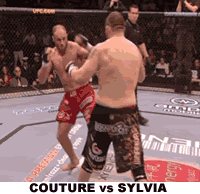As has already been said, speed is rarely as big a factor at heavyweight as it is in smaller weight classes.
When you do have heavyweights that rely on speed or reflexes (like Chris Byrd) at heavyweight, they typically go over the cliff just as quickly as smaller fighters when it comes to age.
When you have the more traditional style heavyweights who rely on power (not speed, which can also produce violent KO’s, but pure raw power), they can typically prolong their careers beyond what we’d normally expect out of a fighter.
That said, it cannot be discounted as to just how historically bad heavyweight has been in the UFC. Generally speaking, you’ve only ever had a very small handful of decent to good fighters at that weight at any given time. It’s not hard for older fighters to feast on mediocre talent.
I remember, for example, when Evander Holyfield had lost three fights in a row and was getting beat by guys like Larry Donald, he took two years off and when he came back, he took on a pug by the name of Jeremy Bates and just absolutely decimated him. He looked like a fucking world beater. Just totally obliterated him within two rounds.
So don’t discount the UFC’s perennially bad heavyweight division as a huge reason why old pros have been able to hang on and extend their careers.
And before anyone gets butthurt and tried to deny it, without Google you can’t even name the UFC’s top 10 heavyweights in the division right now, let alone the top 10 of all time.




